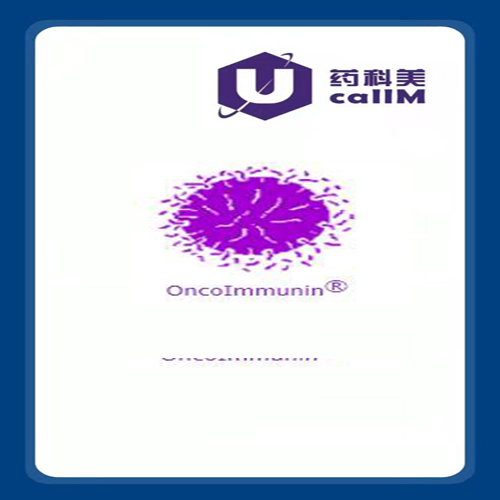OncoImmunin 产品代理

OncoImmunin 产品代理
Cytotoxicity Assays
Autophagy
Apoptosis
(Caspase substrates)
Elastase substrates
β-Secretase /
Cathepsin D
The post genomics/proteomics era exhibits an ever-increasing demand for robust, cost-effective and high throughput technologies to measure biologically active molecules in physiologically relevant environments. A powerful approach to this demand is the development of tools and strategies to deliver reporter molecules into live cells and tissues. This serves not only to introduce reagents that can assess truly physiological processes, it also offers a new avenue in the development of effective therapeutics.
OncoImmunin, Inc. was founded by Dr. Akira Komoriya and Dr. Beverly Packard in 1994. The Company was an early participant in the University of Maryland's Technology Advancement Program, graduating to a full-fledged R&D company with state of the art facilities. It is currently located in Gaithersburg, Maryland, a region rich in small to medium size biotechnology companies. Thus far, OncoImmunin has been issued multiple U.S. and international patents with new applications as well CIP and PCT under review.
OncoImmunin - Successes with Foundational Technologies:
First, highly cell permeable probes for reporting protease activities from all intracellular environments were designed, synthesized, validated, and patented. Unique aspects of these molecules include: (1) incorporation of amino acid sequence information from both sides of protease cleavage sites (up to ten amino acid residues), thereby providing not only linear but three-dimensional specificity for biological recognition (2) ability to cross intact cell membranes enabling measurement of intracellular protease activities in live cells (3) judicious selection of a range of fluorophores allowing multiplexing and (4) lack of probe cytotoxicity permitting continuous observation for extended times. These properties have enabled development of multiparametric applications for live cell assays suitable for high content and high throughput drug candidate screening for defining the molecular events of cellular processes such as apoptosis, autophagy, inflammation, cancer metastasis and cell-mediated cytotoxicity (including ADCC).
Exploitation of structural elements which facilitate cell and tissue permeability form the basis for OncoImmunin's patented design for the therapeutic delivery of peptide-based protease inhibitors as well as for other intracellular targets. Additionally, the delivery moiety can be adapted for small molecules that have exhibited excellent pharmacokinetic properties in solution but are unable to enter live cells.
More recently, OncoImmunin's patented design has been applied to the field of oligonucleotides composed of DNA, RNA, or any nucleotide analogues. The distinguishing aspects of this novel intracellular delivery technology are: oligonucleotides of any sequence can be transported in the absence of toxicity into cells without viral vectors, lipids, salts, detergents, nanoparticles, or electric stimulation. This approach promises to be particularly suitable for gene regulation where one desires minimal or no effect on gene expression or cell viability due to the delivery vehicle, e.g., siRNA and antisense therapeutics.


